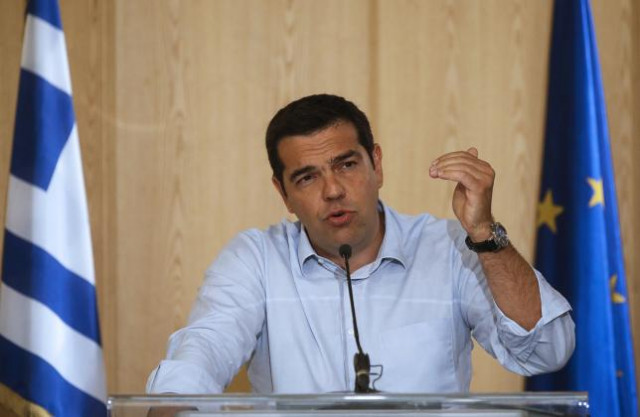A Greek tragedy — Part II
Greece is the first port of call for the thousands of refugees fleeing the conflicts of the Levant

Greek Prime Minister Alexis Tsipras delivers his speech as he attends a news conference after a meeting at the Greek Ministry of Infrastructure, Transport and Networks in Athens, Greece, August 12, 2015. PHOTO: REUTERS
Greeks are already suffering swingeing levels of austerity and the prospect of yet more of the same fills nobody with sweetness and light. Corruption remains rampant and taxation — as in Pakistan — a major stumbling block. The lenders retain their lien on national sovereignty, and democracy is something of a thin firewall between the Euro-bankers and Greek governance. It is difficult to avoid the conclusion that the fiscal consolidation and reform programme was designed to fail, and Greeks are going to be expected to see their pensions and child benefits cut further, with banks foreclosing on property deals that are no longer sustainable, there being no money to support a credit line. The oligarchs of Greece are unlikely to be effectively tackled by a weakened Mr Tsipras, and even if debt relief is quickly transfused, the economy is so crippled that it will remain on life support for years. To add another layer of tragedy, Greece is the first port of call for the thousands of refugees fleeing the conflicts of the Levant. The number of refugees flowing in far exceeds the capacity of the Greek state to cater to their needs even though they are ‘in transit’ rather than looking to settle. A chalice of hemlock sits on the prime ministerial office desk.
Published in The Express Tribune, September 28th, 2015.
Like Opinion & Editorial on Facebook, follow @ETOpEd on Twitter to receive all updates on all our daily pieces.














COMMENTS
Comments are moderated and generally will be posted if they are on-topic and not abusive.
For more information, please see our Comments FAQ